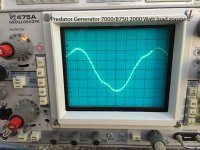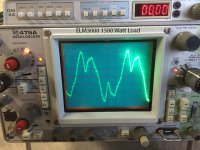No, I posted accurate information instead of advertising designed to get you to pay 2x as much for a generator. The advantage of an inverter generator is that it can throttle back the engine while maintaining frequency and voltage, which can give you much better fuel economy. The trade-off is that they tend to be smaller and more expensive. Building a true regulated sine wave output from an inverter is hard. Put a computer UPS on an oscilloscope sometime. You will be horrified. Fortunately, a rotating field generator naturally produces an almost pure sine wave. Any harmonic distortion is usually cause by clipping the wave peak to avoid over-voltage, but once you load the generator that goes away.
If you stick with the expensive inverter gensets no bigger than about 1600 watts, you will get good output for about $1k. If you go to 7 kw it's going to cost you north of $4k, and most of the cost is the inverter. If you go any cheaper, the output is going to be hash and trash. Any cheap rotating field genset will give perfectly adequate power for less than half the cost.

